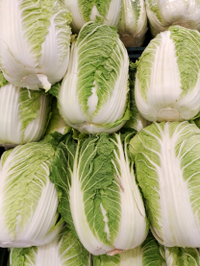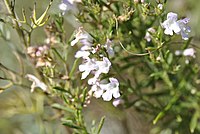
Sunflower resistance against Sclerotinia sclerotiorum is potentiated by selenium through regulation of redox homeostasis and hormones signaling pathways
Sign Up to like & getrecommendations! Published in 2022 at "Environmental Science and Pollution Research"
DOI: 10.1007/s11356-021-18125-7
Abstract: White mold of sunflower caused by Sclerotinia sclerotiorum is a devastating disease that causes serious yield losses. Selenium (Se) helps plants resist stress. In this study, the resistance of sunflower to S.sclerotiorum was improved after… read more here.
Keywords: hpi; caused sclerotiorum; infection; sclerotiorum infection ... See more keywords

Selenium as a potential fungicide could protect oilseed rape leaves from Sclerotinia sclerotiorum infection.
Sign Up to like & getrecommendations! Published in 2019 at "Environmental pollution"
DOI: 10.1016/j.envpol.2019.113495
Abstract: Sclerotinia sclerotiorum (S. sclerotiorum) is a soil-borne pathogen causing serious damage to the yield of oilseed rape. Selenium (Se) acted as a beneficial element for plants, and also proved to inhibit the growth of plant pathogens.… read more here.
Keywords: rape leaves; sclerotinia sclerotiorum; sclerotiorum infection; rape ... See more keywords

Sclerotinia sclerotiorum infection triggers changes in primary and secondary metabolism in Arabidopsis thaliana.
Sign Up to like & getrecommendations! Published in 2020 at "Phytopathology"
DOI: 10.1094/phyto-04-20-0146-r
Abstract: Sclerotinia sclerotiorum is a devastating plant pathogen that causes substantial losses in various agricultural crops. Although plants have developed some well-known defense mechanisms against invasive fungi, much remains to be learned about plant responses to… read more here.
Keywords: secondary metabolism; infection; primary secondary; sclerotiorum infection ... See more keywords

A Novel Effector Protein SsERP1 Inhibits Plant Ethylene Signaling to Promote Sclerotinia sclerotiorum Infection
Sign Up to like & getrecommendations! Published in 2021 at "Journal of Fungi"
DOI: 10.3390/jof7100825
Abstract: Sclerotinia sclerotiorum is one of the most devastating pathogens in Brassica napus and causes huge economic loss worldwide. Though around one hundred putative effectors have been predicted in Sclerotinia sclerotiorum genome, their functions are largely… read more here.
Keywords: protein; sclerotinia sclerotiorum; sclerotinia; sclerotiorum infection ... See more keywords